Rice: Research to Production - 2010 Course Participants

Ferdous Khan
Md. Ferdous Hossain Khan is one of the Assistant Directors under the Agriculture Sciences Division of Rural Development Academy (RDA), Bogra, Bangladesh since November 2004. RDA is a national level Research and Training institute in rural development sector under the ministry of Local Government, Rural Development and Cooperatives. He conducts training and research in the field of rural development. He started his job carrier as a Scientific Officer under a DFID funded project named Research and Extension in Farm Power Issues (REFPI) from 05 April, 2001 to 04 May, 2002. He served as an Agriculture Engineer in Production Processing and Marketing of Aromatic Rice in Northwest Region of Bangladesh project which was funded by IRRI-PETRRA in 01 June, 2002 to 20 January, 2003. After that he was a Training Officer in a GoB funded project for arsenic mitigation activities 21 January, 2003 to 12 June, 2004. He also worked in the Farm Machinery department of a public Vocational Institute of Bangladesh during 13 June, 2004 to 09 November, 2004.
Mr. Ferdous graduated from Bangladesh Agricultural University (BAU) in 1995 in the field of Agricultural Engineering and did his MS in December 2000 in Farm Power and Machinery from the same University. He is an active worker both in the areas of Irrigation & Water Management and Farm Mechanization. Mr. Khan enjoys photography, reading novel and playing badminton in his spare time.
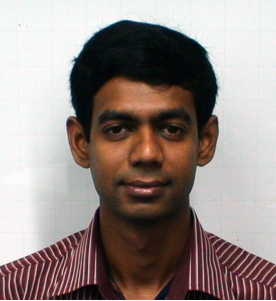
Richard Malo
Richard Malo is a PhD student at IRRI where he studies the mechanism of heat tolerance in rice. His research interest is plant tolerance mechanism in different abiotic stress. He graduated from University of Dhaka. After graduation he worked as a researcher in the lab of Dr. Zeba I. Seraj at University of Dhaka, where he studied the molecular aspect to improve salt tolerance in rice. He enjoys playing Cricket, Badminton, and Billiard in his spare time.
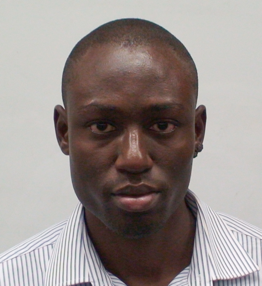
Ebenezer Appiah Adu
Assistant Agronomist at the Ghana Irrigation Development Authority, and is currently stationed at Afife Irrigation Scheme in the Volta Region. At Afife Irrigation Scheme, he works as Extension Officer, Research Officer, Trainer and Special Assistant to the Scheme Manager in Administrative work. He previously worked as a National Service Personnel with the Lands Commission, a governmental organization which manages State lands and Stool lands. Ebenezer graduated from the Kwame Nkrumah University of Science and Technology, majoring in Agriculture in 2006 with a Bachelor of Science degree (second class upper division).Currently, he holds a Project Management Professional Credential from the Project Management Institute, USA and also a member. His interest is in soccer, chess, watching movies and reading books during his leisure time.
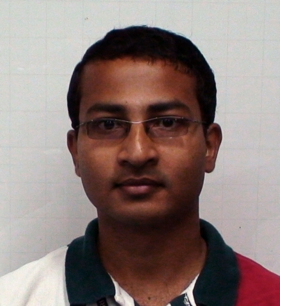
Abhijeet Ghatak
Abhijeet Ghatak is a Master of Science in Mycology and Plant Pathology from Banaras Hindu University (BHU), India. He is interested in the studies relating plant-microbe interactions, population dynamics in plant disease, epidemiology. He is a Ph.D. scholar from GBPUA&T, Pantnagar, India. At present, he is a research scholar at IRRI identifying relationships between rice neck blast and leaf blast epidemiology with supervision of Dr. Laetitia Willocquet, Senior Scientist, Plant Pathology, PBGB. He likes to play Cricket on weekend.
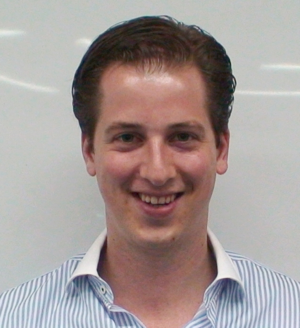
Cornelis van Duijvendijk
I am Kees van Duijvendijk (25) and I work as an Associate Professional Officer (APO) at the Food and Agricultural Organization of the United Nations (FAO) Headquarters in Rome, Italy. The work at FAO mainly focuses on agricultural biodiversity and ecosystem services, and how they relate to sustainable crop production intensification. I have a MSc and BSc degree in International Land- and Water Management (specialization in Irrigation- and Water Engineering) from Wageningen University in The Netherlands.
Research for my MSc thesis was conducted in Central Vietnam, where I looked at the ways in which farmers adapted their cropping system (rice, sometimes including aquaculture) and schedule to the water related limitations, such as flooding, drought, and salinity. I have also spent six months in Washington DC, where I did my internship at the International Union for the Conservation of Nature (IUCN), focusing on the role of water in biodiversity and agriculture.
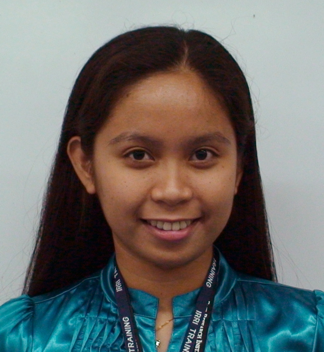
Lovely Lawas
Lovely Mae Lawas is working as a Researcher in IRRI under the heat tolerance objective of the CSISA project, where she is studying the mechanisms of heat tolerance in rice using physiological and molecular approaches. Her research interest focuses on applications of molecular biology, ranging from animals to plants. In fact, prior to working with rice, she worked on gene expression analysis on ducks for her undergraduate thesis, showing versatility in her nature of work. She completed her Bachelor's degree in Biology majoring in Cell and Molecular Biology from the University of the Philippines Los Banos in 2009, after which she had her first job in IRRI. Lovely likes spending quality time with friends, reading books, and playing basketball whenever she finds time.
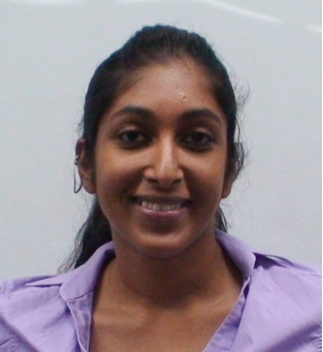
Tara Shyam
Tara Shyam is a Development Officer at the IRRI Fund in Singapore, where she works on building partnerships and support for IRRI. She has previously worked in Public Affairs at the Asia-Europe Foundation, a non-profit intergovernmental organisation. Prior to this, she worked for Google in the AdWords department while also devoting time to Google Grants, its not-for-profit online advertising programme. Tara graduated from The Australian National University, majoring in International Relations and Political Science. She is an active volunteer in various non-profit organisations in Singapore and enjoys yoga, rock climbing and playing the clarinet in her spare time.
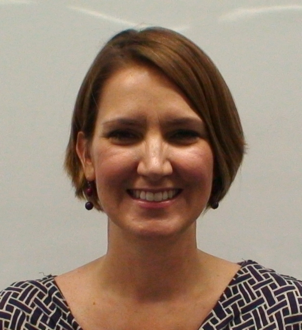
Jill Kuehnert
Jill Kuehnert is a communications professional with 14 years of experience in international agriculture. Currently she is the sole proprietor of Seed Stories, an international communications consulting firm focused on agriculture which she founded in 2008.
Seed Stories helps agriculture companies, trade associations and research organizations build support for the important work they do by uncovering the simple ideas and stories that are at the heart of agriculture. Through Seed Stories, Jill develops core messages, creates content for information materials, and orchestrates communication strategies with clients. She also shares best practices with the broader agriculture community through presentations and training.
Jill has a passion for farmers in developing countries, thanks to extensive travel and work throughout Africa and Asia. She has been involved in public-private partnerships throughout her career, contributing her management, communications and outreach skills to establish new organizations, license technologies to public sector researchers and launch collaborative research in international agriculture.
Jill's corporate experience includes a decade of work at Monsanto Company between 1996 and 2007 in a variety of public policy, project management and communications roles. She led the company's government, industry and public affairs team in the Asia Pacific region for three years. Prior to joining Monsanto, Jill worked for several years at the World Bank in Washington, DC.
Jill has a Master of Arts in Philosophy and Social Policy and a Bachelor of Arts in International Service, both from The American University in Washington, DC.
Jill is based in Singapore with her husband, Glenn Wright. In her free time, she enjoys reading, scuba diving and travelling to visit family and friends around the world.
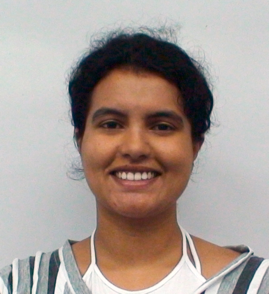
Sashila Walawwe
Gatsby-sponsored Participant
I, Sashila Abeykoon Walawwe, am a PhD student at the faculty of Life Sciences, University of Manchester. My PhD research is to understand and measure the photosynthesis of rice under salt stress. I completed my first degree, specialising in botany with a Second Class honours with an overall GPA of 3.65 (out of 4) at the University of Peradeniya, Sri Lanka. My final year undergraduate project was published at the Peradeniya University Research Sessions in year 2008 under the title of "Lichenological survey in some forest vegetations in the University of Peradeniya".
At the University of Manchester, apart from my research work I work as a demonstrator. I have carried out similar duties back in University of Peradeniya when the university recruited me as a teaching assistant and a demonstrator during 2008-2009. I have actively participated in extracurricular activities in my university years as well as in the high School. I was the Deputy Secretary of the Botanical society in year 2006/2007and I was a key player in high school netball team during 1998-2002.
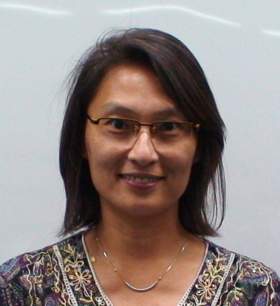
Tsung-Wei Lai
Tsung-Wei Lai is a researcher in the fields of agricultural economics and environmental management. Her areas of interest include sustainable agricultural and economic development, eco-tourism, biodiversity, and waste management. She has also worked as an environmental analyst/scientist in the private sector, conducting site assessment of agricultural land management practices for a major U.S. utility company and Phase I & II environmental audits (USEPA) for multinational companies operating in China. She holds two master's degrees: one in Agricultural Economics (UW-Madison, USA) and one in Environmental Management (University of Queensland, Australia). Tsung-Wei is originally from Taiwan and enjoys travelling, painting, playing tennis and teaching Mandarin Chinese. She is currently living in the Philippines with her husband and two children.
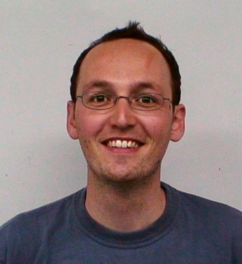
Andrew Howden
Andy Howden is a plant scientist at the University of Oxford where he studies the molecular mechanisms by which plants respond to stress in their environment. He is interested in many aspects of plant biology particularly signalling, stress, plant-PhD in Plant Science at the University of Oxford. Before this he worked as a research assistant in the lab of Professor Pamela Ronald at the University of California, Davis, where he studied disease resistance in rice. In his spare time Andy enjoys biking and hiking especially in the Highlands of Scotland.
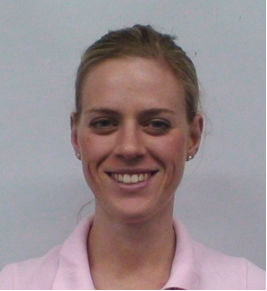
Katherine Meacham
Gatsby-sponsored Participant
After completing high school I left England to work on mixed beef and arable farms in Australia, both in New South Wales and Queensland. After 4 years in Australia working in Agriculture, I decided to return to the UK to commence a BSc Agriculture degree at the Royal Agricultural College, Cirencester, in order to improve my knowledge and open career doors. In my past two years of study I have discovered a passion for using agricultural scientific research to address the hunger and poverty issues facing developing countries. Crop research will be the key to coping with population increase and water shortage, and I am currently undertaking a research project to expose the future possibilities in rice production in the face of imminent challenges.
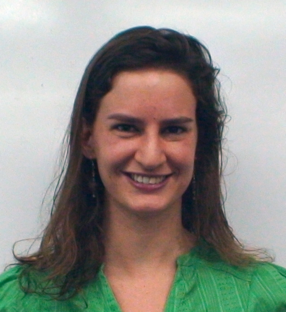
Helen Woodfield
Gatsby-sponsored Participant
Helen Woodfield is a first year PhD student at the University of Cambridge. She is working on the C4 rice project in Dr Julian Hibberd's lab. Prior to this she did an undergraduate degree in Natural Sciences (specialising in Plant Sciences) at the University of Cambridge. In her free time Helen enjoys sailing, trekking and playing the piano.
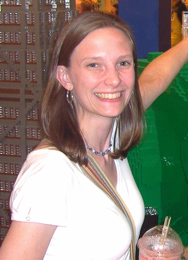
Jessica Brazelton
Ph.D. candidate, Horticulture Purdue U.
NSF-sponsored Participant
I earned a BS in biology from Allegheny College in 2007. I am currently a 3rd year PhD student at Purdue University. I entered Purdue through the PULSe interdisciplinary life science program, and joined the laboratory of Dr. David Salt in the horticulture department. My research focuses on understanding the molecular basis for the extensive polymorphic functional sufficiency of HKT1 in Arabidopsis thaliana and its role in adaptation to the environment. While my research uses a model laboratory plant, I recognize that having a practical knowledge of global crop species is crucial for future agricultural research, especially in the areas of stress tolerance and nutrient accumulation.
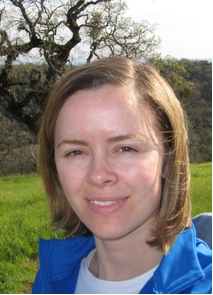
Dawn Chiniquy
Ph.D. candidate, Plant Biology, U. California Davis
NSF-sponsored Participant
I worked for two years as a lab technician at the US Department of Agriculture in the Transgenic Crop Risk Mitigation Unit, where I worked on developing tools in rice, such as tissue specific promoters and new excision enzymes that would potentially allow GMO to gain more public acceptance. In 2007, I started my PhD in Plant Biology at UC Davis on an NSF fellowship. I now work in the Ronald lab and am part of the Joint BioEnergy Institute (JBEI) in Emeryville, CA where I am characterizing a set of genes involved in xylan synthesis in rice that may allow for a feedstock more amenable to breakdown into biofuels.
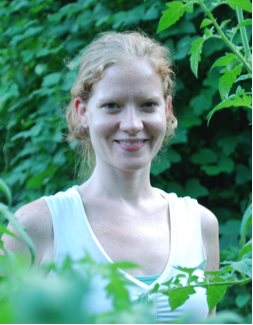
Cynthia Climer
Ph.D. candidate in the Genetics and Biochemistry Clemson University
NSF-sponsored Participant
I study population genomics and species interactions. I work on the interactions of weedy rice with cultivated rice in United States agro-ecosystems. I am studying the genetic impacts of these interactions at different temporal scales (old and new introductions) and with different management practices (seeding, tilling, and crop rotation). My other projects include population genetics of wild Arabidopsis species and Hawaiian Silverswords. My career goal is to teach at a small university and run an undergraduate focused research program. I hope to collaborate with other researchers at larger institutions in order to foster exchange between lab based and classroom based science as well as recruit underrepresented groups into scientific careers.
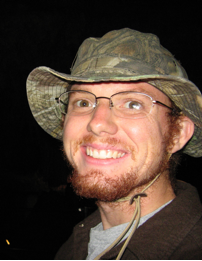
Douglas Eudy
Ph.D. candidate, Plant Breeding and Genetics, University of Georgia
NSF-sponsored Participant
In August 2008 I graduated from Truman State University in Kirksville, MO with Bachelor's degrees in biology and art history. While an undergraduate, I participated in a range of research opportunities which included projects in plant science, wildlife biology, microbial ecology, anthropology, and art history. In August 2009 I began work as a PhD student in the Institute of Plant Breeding, Genetics, and Genomics at the University of Georgia where I am a Presidential Fellow in the lab of Dr. Katrien Devos. My PhD project focuses on developing molecular markers and mapping QTL conferring salt tolerance in the C4 Panicoid grass Paspalum vaginatum.
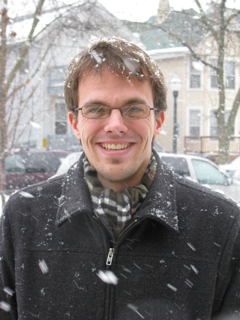
Nathaniel Fickett
M.Sc. Agronomy, U. of Wisconsin, Madison
NSF-sponsored Participant
A trip to Namwera, Malawi set my course for graduate studies in agronomy with a goal of eventually working with agriculture in developing countries. My master's thesis at the University of Wisconsin-Madison is exploring when farmers are spraying post-emergence herbicides in corn and soybean, what the potential yield loss is from late applications, and practical means of addressing risk management within the system. Currently, I am planning on pursuing a Ph.D. working in rice starting this fall. My research interests include low input sustainable farming, integrated pest management, and weed science. Other interests include biking, hiking, edible wild plants, mushrooms, and singing.
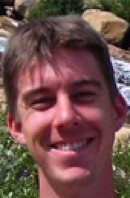
John Field
Ph.D. candidate, Mechanical Engineering Colorado State University
NSF-sponsored Participant
My research is in life cycle assessment of bioenergy production schemes, and I have a particular interest in thermochemical biomass conversion technologies in developing countries. Rice husks and straw represent a large and virtually untapped bioenergy feedstock, and gasification-based technologies appropriate for their conversion are both mature and accessible. During the IRRI shortcourse I hope to familiarize myself with rice waste management techniques in developing country settings, and I will supplement my experience at IRRI with some additional work at a rice husk gasification facility in Cambodia.
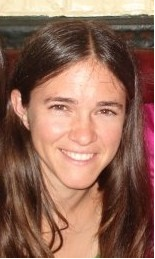
Kristal Jones
M.S. Rural Sociology, Pennsylvania State U.
NSF-sponsored Participant
Grew up in Bozeman, MT, far from rice fields or hot climates. After receiving a bachelor's degree in international politics joined the Peace Corps, and served for two years as an agroforestry volunteer in Senegal. Merging a desire to make a difference through development work with recognition of the primacy of agriculture in many marginal environments, Kristal is currently a graduate student in rural sociology at the Pennsylvania State University. She will begin field work this summer studying the effects of participatory agricultural research and development projects in West Africa.
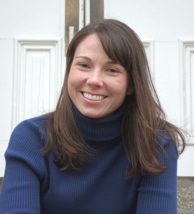
Jill Motschenbacher
Ph.D. candidate Soil Physics, U. Arkansas
NSF-sponsored Participant
Prior to beginning my academic career, I spent four years in the United States Navy as an Interior Communications Electrician aboard the USS Sacramento (AOE-1), which was stationed out of Bremerton, Washington. My time spent in the military initiated my interest in international relations by allowing me to travel extensively throughout Asia and Australia. My dissertation research focuses on the long-term effects of rice-based (Oryza sativa) crop rotations with continuous rice, soybean (Glycine max), corn (Zea mays), and wheat (Triticum aestivum) using different tillage and fertility treatments on near-surface soil carbon cycling. I am also evaluating the impacts of the rotation-tillage-fertility treatment combinations on soil surface CO2 fluctuations, water-stable aggregation, and near-surface chemical properties.
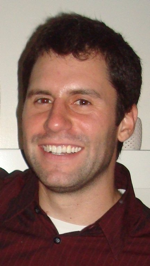
Paul Tanger
Ph.D. candidate Bioagricultural Sciences and Pest Management, Colorado State U.
NSF-sponsored Participant
Paul is a recipient of a National Science Foundation fellowship in sustainable bioenergy, and is investigating disease resistance traits that may also have positive benefits for biomass accumulation, with a focus on uses of rice agricultural residues. We are just beginning to understand how components of the plant cell wall undergo changes during pathogen invasion. Paul hopes to contribute through the identification of key regulators of cell wall homeostasis, leading to the development of new cultivars able to address the needs of a growing society.
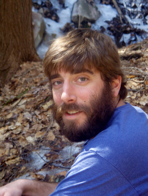
Daniel Tobin
M.Sc. Agricultural and Extension Education Pennsylvania State University
NSF-sponsored Participant
Dan worked as the assistant farm manager on a small, organic family farm in northern Connecticut for two seasons until he joined the Peace Corps. Serving as an Agriculture Extension volunteer in rural Bolivia, Dan worked with farmers on projects pertaining to beekeeping, forage crop production, and irrigation systems. Upon the completion of his service, he moved to western Massachusetts where he taught high school history for a year before entering a Master's program in Agricultural and Extension Education at Penn State University, where he is researching how third-party food safety certification is affecting local produce growers. When he completes his graduate school studies, Dan hopes to work in international development, specifically utilizing a participatory approach so that communities can identify and implement strategies to preserve and improve their agricultural systems.
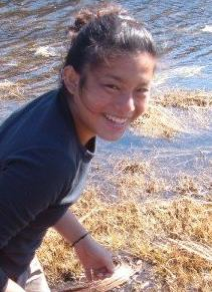
Diane Wang
B.Sc. student Biology, Cornell University
NSF-sponsored Participant
Diane Wang is a senior undergraduate at Cornell majoring in Biology and Entomology with a minor in Plant Science. She has been doing research in Susan McCouch's rice lab since her freshman year and will be continuing to work there after graduation. Her academic interests range widely, so she is taking time off from school before thinking about graduate studies. Diane enjoys backpacking, traveling, and interacting with interesting people and is really excited at the idea meeting everyone on the IRRI course.
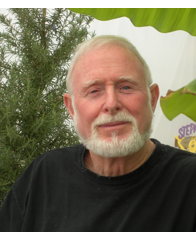
James Waring
Secondary School Science teacher, Ithaca, NY
NSF-sponsored Participant
Learning, teaching and planting have been the common threads of my life held together by the questions "how", "why" and "what if". Born to an agricultural family on pre-Levittown Long Island, planting weeding and harvesting were the first lessons learned as a child. After a six year stint in the corporate world, the lure of establishing an agribusiness drew me back to Ithaca. Greentree Nursery and Garden Center became the focus of the lives of myself and family for the next 35 years. As the fields and forests around the business became converted to big box stores and parking lots the business philosophy changed from tools, tropicals and chemicals to a holistic approach of growing and utilizing the Earth's resources. We learned, and taught, it is not only what you grow but how you grow it that influences the outcome.
Serving on Ithaca City School District and TST BOCES Boards of Education showed how education and educational policy can affect the future. This directed my third career, a teacher. The Cornell MAT (2004) program introduced possibilities hitherto unimagined. Associating with educators and researchers through CIBT and BTI developed knowledge in the world of molecular biology and its impact on plant production. This and the practical experience of many years of growing greatly aided the ability to guide "inquiry" based learning.
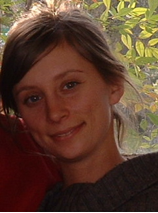
Paula Wild
M.Sc. International Agriculture Development, U. California Davis
NSF-sponsored Participant
I am currently completing a masters degree in International Agricultural Development at the University of California-Davis. For my thesis I had the pleasure of working with California's organic rice growers on a nitrogen fertility study, which has taught me an incredible amount about agricultural research, nitrogen dynamics in flooded soils and wet-seeded rice production. I am excited to continue deepening my relationship with this amazing plant, and those who cultivate it as a livelihood. I was born in Warsaw, Poland and grew up in Madison, WI where I received a Bachelor of Arts degree in International Studies of the Environment, Polish and Spanish in 2005.
I have also had the opportunity to work as an assistant farm manager and an environmental educator in California. I enjoy learning and teaching about food systems, agricultural production, and ethnobotany.
At IRRI I hope to gain insight into how a CGIAR center functions, and to gain familiarity with a variety of rice cultivation methods practiced by farmers all over the world.
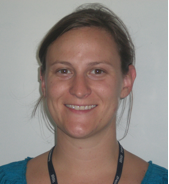
Katie Nelson
Katie Nelson is a Development Communications consultant at IRRI. She collaborates with researchers and national partners to develop and test materials for farmers and agricultural technicians. She has a strong interest in improving methods of delivering agricultural information to farmers and will attend graduate school at Cornell University in 2010 in International Agriculture and Rural Development. Previous to living in the Philippines, she lived abroad in Australia, Mexico, and Indonesia. Her hobbies include snowboarding, scuba diving, hiking, and playing sports.
